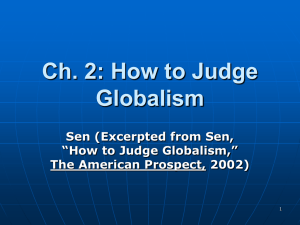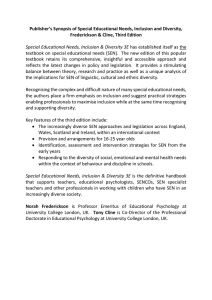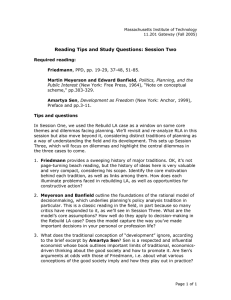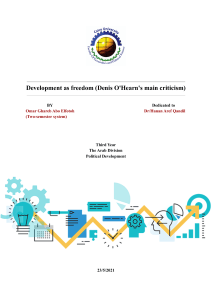The Global Reach of Sen
advertisement
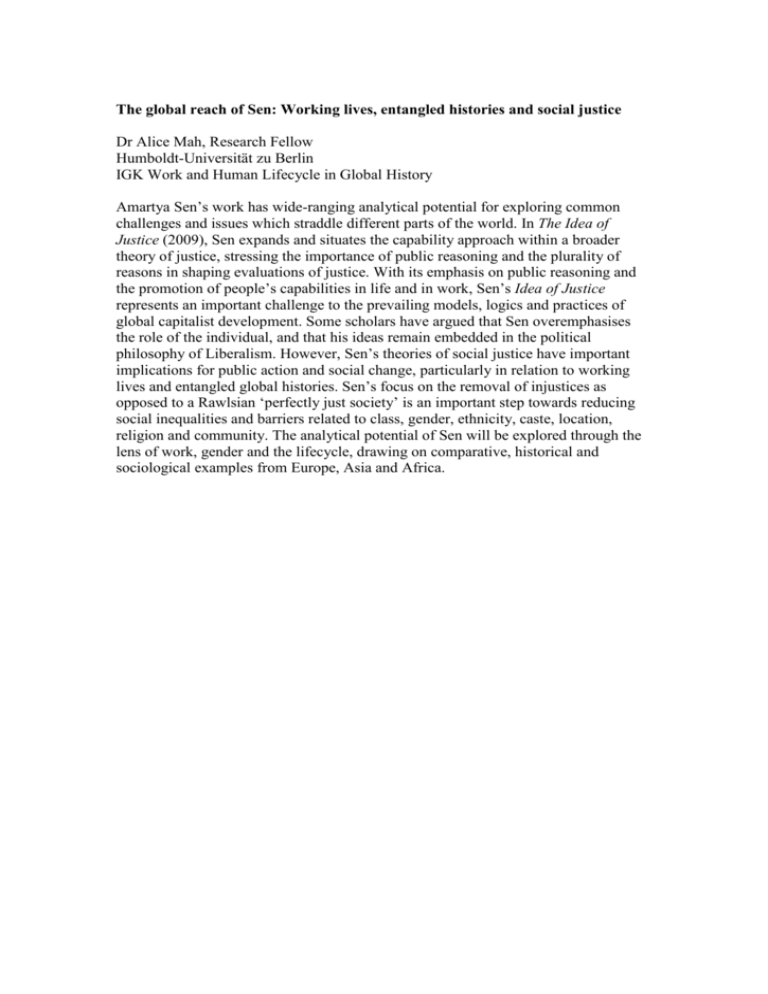
The global reach of Sen: Working lives, entangled histories and social justice Dr Alice Mah, Research Fellow Humboldt-Universität zu Berlin IGK Work and Human Lifecycle in Global History Amartya Sen’s work has wide-ranging analytical potential for exploring common challenges and issues which straddle different parts of the world. In The Idea of Justice (2009), Sen expands and situates the capability approach within a broader theory of justice, stressing the importance of public reasoning and the plurality of reasons in shaping evaluations of justice. With its emphasis on public reasoning and the promotion of people’s capabilities in life and in work, Sen’s Idea of Justice represents an important challenge to the prevailing models, logics and practices of global capitalist development. Some scholars have argued that Sen overemphasises the role of the individual, and that his ideas remain embedded in the political philosophy of Liberalism. However, Sen’s theories of social justice have important implications for public action and social change, particularly in relation to working lives and entangled global histories. Sen’s focus on the removal of injustices as opposed to a Rawlsian ‘perfectly just society’ is an important step towards reducing social inequalities and barriers related to class, gender, ethnicity, caste, location, religion and community. The analytical potential of Sen will be explored through the lens of work, gender and the lifecycle, drawing on comparative, historical and sociological examples from Europe, Asia and Africa.
